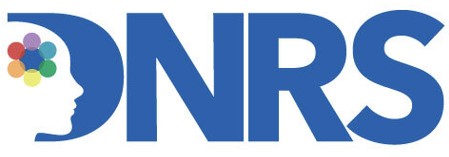Healing from Mast Cell Activation Syndrome with DNRS
Mast Cell Activation Syndrome (MCAS)
What is MCAS?
MCAS is a condition where mast cells—immune cells responsible for allergic and inflammatory responses—become overly reactive, releasing excessive histamine and other inflammatory chemicals. This can lead to symptoms such as flushing, hives, itching, digestive issues, fatigue, brain fog, and sensitivities to food, chemicals, or environmental triggers.
Mast Cell Activation Syndrome Symptoms: Constant Reactivity
If you’re living with Mast Cell Activation Syndrome (MCAS), you know how overwhelming and unpredictable each day can be. It feels as though you are allergic to everything. The constant reactions—whether to food, scents, stress, or seemingly nothing at all—can make life feel like a minefield. Symptoms such as itching, rashes, swelling, digestive distress, brain fog, fatigue, and anaphylactic-like reactions can leave you feeling helpless and isolated. When your body is caught in a state of high alert, even the smallest triggers can send your system into a storm of inflammation and discomfort.
But what if healing was possible? What if your body’s overactive responses weren’t permanent, but rather a learned state that could be rewired?
You don’t have to live in fear of your body’s reactions forever. By rewiring your brain and shifting out of chronic overprotection, you can restore balance and freedom to your life. Healing is possible, and DNRS is here to guide you on your journey.
The Role of the Limbic System in MCAS
The limbic system is a part of the brain responsible for processing emotions, memories, and survival responses. It plays a key role in regulating the autonomic nervous system, immune system, and inflammatory responses. When the limbic system is in a state of chronic overactivation—often due to trauma, infections, prolonged stress, or environmental exposures—it can misinterpret harmless stimuli as threats. This can contribute to conditions like MCAS, where the body remains stuck in a state of hypersensitivity.
This is where the Dynamic Neural Retraining System (DNRS) comes in. DNRS is a neuroplasticity-based program designed to help rewire maladaptive patterns in the brain, calming the overactive limbic system and restoring balance to the body. By guiding the brain out of a state of chronic overprotection, DNRS helps address the root cause of MCAS symptoms rather than just managing them.
Healing is Possible
Central sensitization occurs when the nervous system becomes hypersensitive, amplifying pain and immune responses. Many people with MCAS also experience conditions like multiple chemical sensitivities (MCS), fibromyalgia, chronic fatigue syndrome (ME/CFS), and postural orthostatic tachycardia syndrome (POTS). This suggests a shared mechanism—an impaired limbic system that keeps the body stuck in a heightened state of defense. DNRS works by shifting these neural patterns, helping the nervous system return to a normal, balanced state where the body no longer perceives everyday substances as threats.
If you’ve tried medications, elimination diets, and lifestyle changes with limited success, DNRS offers a new approach—one that empowers you to train your brain and reclaim your life. Thousands of individuals with MCAS and other chronic conditions have used DNRS to experience profound improvements, reducing or even eliminating their hypersensitivity reactions over time.
By focusing on neuroplasticity, DNRS provides a roadmap to healing that addresses the underlying brain dysfunction driving MCAS. You are not broken—your brain is simply stuck in a protective mode, and with the right tools, you can guide it back to a state of safety and resilience.
-
The nervous system plays a key role in regulating immune function. When the limbic system is in a chronic state of hypervigilance, it can contribute to exaggerated immune responses, including mast cell overactivation. This means that over time, the body may start reacting to harmless stimuli as if they were threats, leading to ongoing inflammation and symptoms.
-
Yes! DNRS is designed to calm an overactive limbic system, which can help regulate immune function, reduce excessive histamine release, and restore balance in the body. Many people with MCAS have found that as they retrain their brain, their sensitivities decrease, and their bodies become more resilient.
-
DNRS is not a replacement for medical care, but it can be a powerful complementary approach to help reduce symptoms at their root cause. Many people find that as they retrain their brain, they naturally need fewer interventions over time. Always work with your doctor to make informed decisions about your treatment.
-
Many DNRS participants with MCAS report:
– Reduced food and environmental sensitivities
– Fewer histamine-related reactions
– Improved digestion and energy levels
– Increased ability to tolerate previously triggering situations -
Healing is unique to each person, but consistent application of DNRS leads to noticeable improvements over time. Some experience shifts within weeks, while others see steady progress over several months. The key is daily commitment to retraining the brain.
-
Yes! DNRS is a gentle, self-directed program that allows you to progress at your own pace. It is designed to support the body’s natural ability to heal by rewiring maladaptive stress responses.
Disclaimer
The content in this website is for informational purposes only, and is not a substitute for medical diagnosis, treatment or advice. Please consult a physician or other health care provider prior to using any information or resources contained on or through this website.
